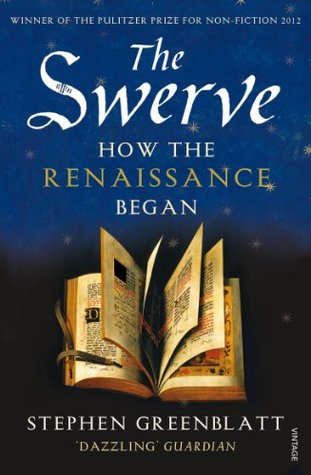More on this book
Community
Kindle Notes & Highlights
Human society began not in a Golden Age of tranquility and plenty, but in a primitive battle for survival.
The idea that language was somehow given to humans, as a miraculous invention, is absurd. Instead, Lucretius wrote, humans, who like other animals used inarticulate cries and gestures in various situations, slowly arrived at shared sounds to designate the same things.
violent
struggle—against the wild beasts that threatened human survival—was largely successful, but the anxious, acquisitive, aggressive impulses have metastasized. In consequence, human beings characteristically develop weapons that turn against
thems...
This highlight has been truncated due to consecutive passage length restrictions.
All organized religions are superstitious delusions.
Humans project images of the power and beauty and perfect security that they would like to possess.
The highest goal of human life is the enhancement of pleasure and the reduction of pain.
It is comforting,11 when winds are whipping up the waters of the vast sea, to watch from land the severe trials of another person: not that anyone’s distress is a cause of agreeable pleasure; but it is comforting to see from what troubles you yourself are exempt. It is comforting also to witness mighty clashes of warriors embattled on the plains, when you have no share in the danger. But nothing is more blissful than to occupy the heights effectively fortified by the teaching of the wise, tranquil sanctuaries from which you can look down upon others and see them wandering everywhere in their
...more
principal enemies of human happiness are inordinate desire—the fantasy of attaining something that exceeds what the finite mortal world allows—and gnawing fear. Even the
It might seem at first that this comprehension would inevitably bring with it a sense of cold emptiness, as if the universe had been robbed of its magic. But being liberated from harmful illusions is not the same as disillusionment.
With the aid of poetry, however, the actual nature of things—an infinite number of indestructible particles swerving into one another, hooking together, coming to life, coming apart, reproducing, dying, recreating themselves, forming an astonishing, constantly changing universe—can be depicted in its true splendor.
Human beings, Lucretius thought, must not drink in the poisonous belief that their souls are only part of the world temporarily and that they are heading somewhere else. That belief will only spawn in them a destructive relation to the environment in which they live the only lives that they have.
poet
The Utopians, More wrote, are inclined to believe “that no kind of pleasure is forbidden, provided no harm comes of it.”
Giordano Bruno.
“The world is fine22 as it is,”
his philosophical cheerfulness extended to his everyday life.
The universe, in its ceaseless process of generation and destruction and regeneration, is inherently sexual.
he preferred life to fame.
He once saw a man die, he recalled, who complained bitterly in his last moments that destiny was preventing him from finishing the book he was writing. The absurdity of the regret, in Montaigne’s view, is best conveyed by lines from Lucretius: “But this they fail to add: that after you expire/Not one of all these things will fill you with desire.” As for himself, Montaigne wrote,
“I want death8 to find me planting my cabbages, but careless of death, and still more of my unfinished garden” (“That to philosophize is to learn to die”).


